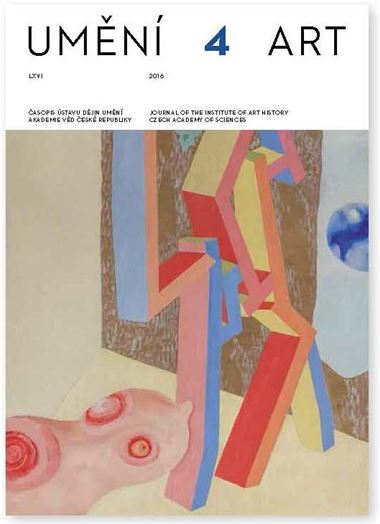Milena Bartlová
„Není možno se vzdát svobody myšlení“. Vincenc Kramář a marxismus 1945–1960
Vincenc Kramář was an important figure in Czech art history and museum management in the period between the two World Wars. Until now, however, systematic attention has not been focussed on his activity in the post-war era. Although already aged seventy in 1947, he continued for a further thirteen years to be an important figure of Czech cultural policy. This study is based on the critical reading of Kramář’s published and also unpublished texts and confronts them with his activities in the same period of time in the context of professional and institutional history, to the extent to which they can be substantiated on the basis of archive documents. The aim was to ascertain what strategies were used by this important representative of the pre-war cultural elite to cope with the new political situation, bearing in mind that I do not consider the simplified polarity of submission and resistance to be suitable and helpful for the acquisition of deeper knowledge. The main personalities with whom the thinking and activity of Kramář are compared are Jaromír Neumann in the generation of the young Stalinists and Karel Teige in the generation of the Czech leftist avantgarde, which was suppressed by force. It is becoming apparent that he was the only acknowledged art historian in our country to consider, at the end of the forties and during the fifties, an original and non-dogmatic, albeit fragmentary and unsystematic, Marxist concept of the theory and history of art; he evidently followed Max Raphael. His influence spread indirectly and privately; its legacy became, in the second half of the forties and the first half of the fifties, a support for the efforts to return the Czechoslovak art and art history of the time towards a modernistic orientation and the values of the avantgarde. Kramář can also be seen as a representative of the pre-war cultural elite who remained active after the communists took power in 1948. He did not reject his pre-war position but he tried to develop it. The study also enables recognition of one of the models of the intellectual work of the time, aimed at such a form of Marxism as would be compatible with traditional local professional discourse and also intellectually satisfying.
Full-text in the Digital Library of the Czech Academy of Sciences:
https://kramerius.lib.cas.cz/uuid/uuid:5504f8d2-05d4-416e-8db7-dbd210bbca80
< back

